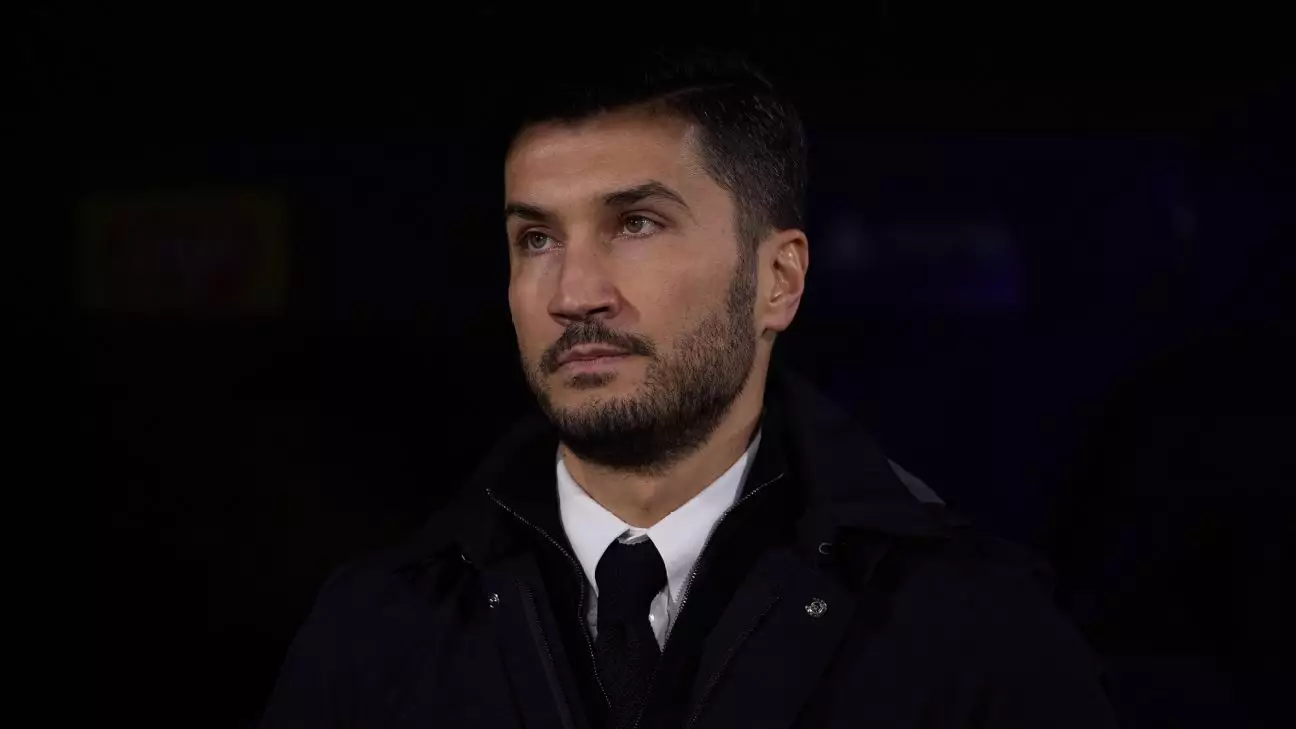Borussia Dortmund has long been regarded as one of Germany’s premier football clubs, yet its recent performance has been marked by instability and disappointing results. One of the most significant decisions affecting its trajectory has been the managerial departure of Nuri Şahin, who, after a short tenure, was dismissed due to an alarming combination of inadequate team performance and failure to implement a successful strategy. This article delves into the factors contributing to Şahin’s downfall and assesses the broader implications for Dortmund as they seek to reclaim their former glory.
Şahin’s return to Dortmund initially sparked optimism. Appointed as the club’s manager after working as an assistant to Edin Terzić, he was believed to bring a fresh perspective that could re-establish Dortmund’s competitive edge. However, his appointment came on the heels of a challenging stint under Terzić, during which the team struggled to find its footing in both the domestic league and European competitions. With heavy expectations resting on his shoulders, many viewed Şahin as a catalyst for a much-needed transformation, one that aimed to recalibrate Dortmund’s footballing identity.
Unfortunately, Şahin’s vision never fully materialized on the pitch. The team fell into a troubling rut, culminating in a dismal string of four consecutive losses, including a defeat to Bologna that underscored the precarious state of the club. Dortmund was languishing in the mid-table of the Bundesliga, alarmingly distanced from league leaders Bayern Munich. This situation was compounded by their lackluster performances in the UEFA Champions League, where they found themselves near the relegation zone of the group phase, prompting criticism from fans and club executives alike.
Despite Şahin’s intentions to build a possession-based style of play, the reality was starkly different. Early in the season, Dortmund appeared disorganized, lacking both the confidence and cohesion to execute his tactical ideas effectively. Subsequent matches revealed a disjointed team frequently reverting to Terzić’s reactive strategy, ultimately resulting in a failure to score goals or defend successfully. This disconnect between methodology and execution can often be fatal for a manager, and in this case, it proved to be so for Şahin.
While Şahin’s sacking represents a pivotal moment for Dortmund, it must be recognized that the issues at hand extend beyond his capabilities. His dismissal is indicative of deeper structural problems within the club. For one, the frequent turnover of managerial staff—Şahin was the fifth manager since 2018—reveals a chronic instability that has stymied the club’s progress. It raises crucial questions about the club’s recruitment policies, player development, and overall strategic direction.
The criticisms directed towards Şahin also mask the reality of team dynamics. Reports indicate that the players largely remained supportive of their manager until the bitter end, contrasting sharply with previous seasons’ player revolts against Terzić. This raises concerns about the leadership within the squad. Figures such as Emre Can and Julian Brandt have failed to inspire through their performances, and the absence of influential leaders has left a void that strengthens the downward spiral.
In light of these challenges, Borussia Dortmund must tread carefully as they embark on the journey to find Şahin’s successor. Speculation surrounding potential candidates, including former Bayern Munich manager Niko Kovač, suggests that the club is looking for someone capable of instilling discipline and a fighting spirit within the team. Kovač may not be a strategic calling card but can likely galvanize the players into giving their best efforts on the pitch.
Dortmund’s future direction may also hinge on a broader assessment of their squad. With notable departures in recent years, including Erling Haaland and Jude Bellingham, along with influential veterans like Marco Reus, it is apparent that the squad requires a thorough reevaluation. Although a complete overhaul may not be feasible during the ongoing season, identifying talent that can drive performance has become imperative.
The dismissal of Nuri Şahin marks yet another chapter in Borussia Dortmund’s rollercoaster saga. While he was not wholly to blame for the poor results, the club’s predicament serves as a stark reminder of the intertwining nature of management, player performance, and structural stability. As Dortmund embarks on a new search for leadership, the focus must extend beyond mere managerial changes. A comprehensive and cohesive strategy that prioritizes effective player recruitment and development is necessary to restore the pride and competitiveness that fans expect from such a storied institution. Without a doubt, the journey ahead is fraught with challenges, but with the right approach, there may still be hope for resurgence.

